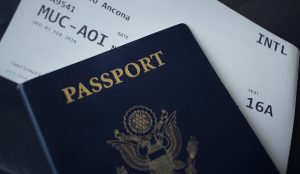Many investors and companies from overseas have chosen to open their own international business entities in Vietnam in recent decades for various reasons.
Main reasons for overseas incorporation in Vietnam
The first step of the long-term business plan
Executing a comprehensive business strategy necessitates the establishment of an overseas formal business entity. Such an entity not only ensures the legal recognition and protection of investments but also, for legal or tax convenience, many Vietnamese companies opt to form partnerships with other entities registered within the same country.
Freedom in business
In the past, numerous international companies may have engaged in Vietnam’s business landscape indirectly through a network of partners or nominee ownership. Nevertheless, this approach was costly and imposed limitations on their operations. Decision-making processes and business outcomes were often protracted and susceptible to various external influences.
The remedy to this challenge is to establish their own business entity in Vietnam, allowing them to directly manage their affairs. This streamlines the process, reduces the expense associated with nominee services, and grants them greater autonomy in conducting their business.
Client’s preferences
Many oversea companies have opted to establish a presence in Vietnam primarily because their Vietnamese clients prefer it. Conducting business, including contract signing, payments, and invoice procurement, is typically more straightforward when dealing with a locally registered entity rather than one based in another country.
The bureaucratic complexities associated with cross-border transactions have driven these companies to establish a legal entity in Vietnam to maintain their business relationships with local clients and partners.
Conditions for company incorporation in Vietnam
Having a business address
All business entities are required to secure a business address in Vietnam as part of the establishment process. In many cases, investors can use a virtual office (VO) as their registered address.
However, certain businesses may face restrictions related to the size, location, or nature of their physical address, making the use of a virtual office inappropriate. It is essential to be aware of which business lines permit or prohibit the use of a virtual office, as this knowledge can significantly streamline and economize the setup process.
It’s important to note that the business address can be modified and updated as needed, but each change requires an amendment or update to the business license.
Having a legal representative
Every business entity operating in Vietnam must designate an individual to serve as the legal representative. This person must either have a permanent address in Vietnam or spend a minimum of 183 days in the country each year.
This individual is commonly referred to as the ‘Resident Legal Representative.’ The role can be assumed by either a Vietnamese or a non-Vietnamese individual, but if a non-Vietnamese person is appointed, they must obtain a Work Permit.
Additional business conditions
In addition to securing a Business Address and appointing a Resident Director, businesses may need to fulfill additional requirements based on their specific industry, including capital investment, business facilities, and workforce qualifications.
For detailed information, you can reach Iris International’s professional consultant. We provide free unlimited consultation to ensure you are well informed about choices, challenges, and requirements when operating your business in Vietnam.
We are proud to be trusted by many clients in business setup in Vietnam, and help your business smoothly and seamlessly operate in Vietnam and many other countries.
Read more about: 10 Steps to get your company fully opened and ready to run in Vietnam
Contact us for more information.







